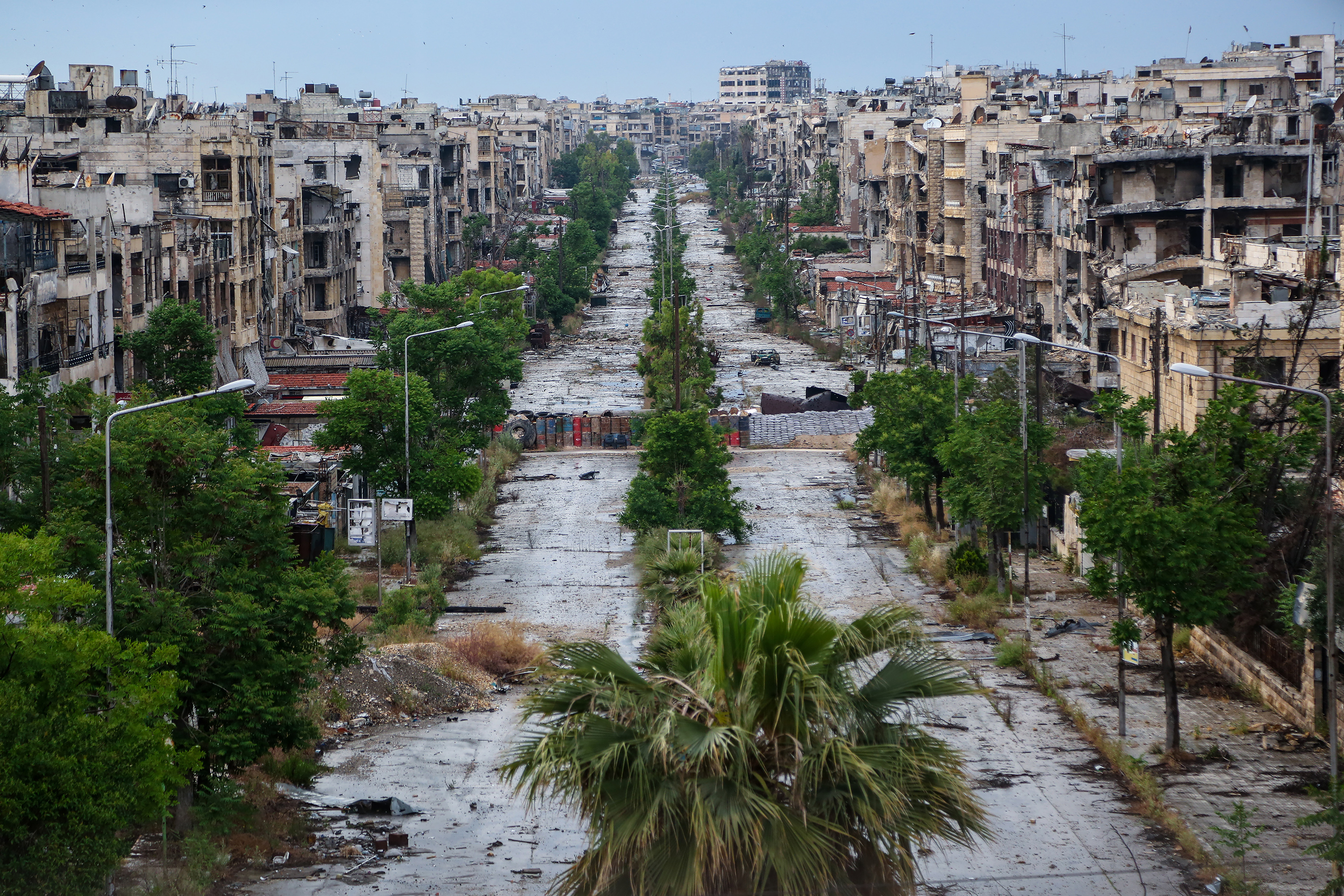German court hands down historic Syrian torture verdict (Deutsche Welle)
“A German court on Wednesday sentenced former Syrian secret service agent Eyad A. to four-and-a-half years in prison on charges of aiding and abetting crimes against humanity.
The Syrian novel: Enlightenment in the face of darkness
23 February 2021
‘Why do you take photos?’
19 February 2021
The 44-year-old is accused of rounding up people following anti-government demonstrations in the Syrian city of Douma in 2011 and delivering them to a detention center where they were tortured.” Read more
Season of migration to the soul (Mashallah News)
“The only person I know who chose—because he was one of the few who had an opportunity to select—a tropical city to settle in was a Syrian poet, who is so tenacious to his oriental roots that he writes under the pen name ‘The Damascene Sinbad’. After I lost touch with him, he persisted to show up in my dreams for almost a year. Throughout the complex process of dreaming, where my soul would travel to the dark cold corners of unconsciousness, his original countenance began fading and the reddish brown traces of the tropical sun of Kuala Lumpur on his forehead and cheeks waned, dream after dream, and morphed into features of other acquaintances.” Read more
Israel secretly agrees to fund vaccines for Syria as part of prisoner swap (The New York Times)
“When a young Israeli woman was released from detention in Syria this week, after having been arrested for crossing illegally into Syria, the official story was that she had been the beneficiary of a straightforward prisoner swap. In return for her freedom, the Israeli government announced, she had been exchanged for two Syrian shepherds captured by the Israelis.
But if this deal between two enemy states, which have never shared diplomatic relations, sounded too swift and easy, it was.” Read more
The hidden world of Istanbul’s Rums (The Markaz Review)
“A Recipe for Daphne first arrived in my inbox as a pdf manuscript a year or so before it had found a publisher. Nektaria Anastasiadou contacted me on Twitter after she had read my first novel, The Unexpected Love Objects of Dunya Noor. She felt an affinity between our literary voices, even though my novel was set in Syria from the 1970s to ‘90s and hers in Istanbul between 2011-2012. Both our texts were out-of-the-box in that we combined a literary voice with a playful and entertaining tone, and used humor to address sometimes intense and painful themes. We both seemed to write about the Middle East in a way that was not often familiar to an English-reading audience, and had both experienced rejection from mainstream publishers resulting from that lack of familiarity, or attempts to make us rewrite our novels to fit an often stereotypical view of our native worlds.” Read more
Mending what has been broken
12 February 2021
Long night to resurrection
05 February 2021
The evidence of Syrian President Bashar Assad and his regime's legacy of war crimes (CBS News)
“President Biden and his national security team will soon face a horror that erupted a decade ago, when many of them were in the Obama administration. March will bring the 10th anniversary of the popular uprising that began Syria's civil war. The Syrian dictator, Bashar al-Assad, has gassed the innocent, bombed hospitals and schools, and made thousands disappear. The evidence is hard to watch but it should be seen. Many risked their lives to tell this story so that—even if Assad is never arrested—he will be, forever, handcuffed to the truth.” Read more
The day the world stood still (Newlines Magazine)
“In the early hours of Aug. 21, 2013, Scott Cairns was struggling to sleep in his room at the Four Seasons Hotel in Damascus. Cairns was part of a United Nations mission headed by the Swedish scientist Åke Sellström to investigate the regime’s alleged use of chemical weapons. The mission included representatives from the World Health Organization and the Organization for the Prohibition of Chemical Weapons (OPCW). As the head of the OPCW contingent, Cairns had cause to be apprehensive. Samples recovered from the lungs of a woman killed in an attack on Saraqeb four months earlier had confirmed that the regime was using the nerve agent sarin.” Read more
Having won Syria’s war, al-Assad is mired in economic woes (The New York Times)
“As the 10-year anniversary of Syria’s civil war looms, Mr. al-Assad’s most immediate threats are not the rebel factions and foreign powers that still control large swaths of the country. Instead, it is the crushing economic crisis that has hobbled the reconstruction of destroyed cities, impoverished the population and left a growing number of Syrians struggling to get enough food.” Read more
'Red Line' examines Syria's use of chemical weapons, and the world's discovery of it (NPR)
“A new book takes a detailed look at an excruciating moment for Syria, the United States, and the world—the time in 2013 when the U.S. concluded that Syria's government had used chemical weapons in its long running civil war.” Read more









